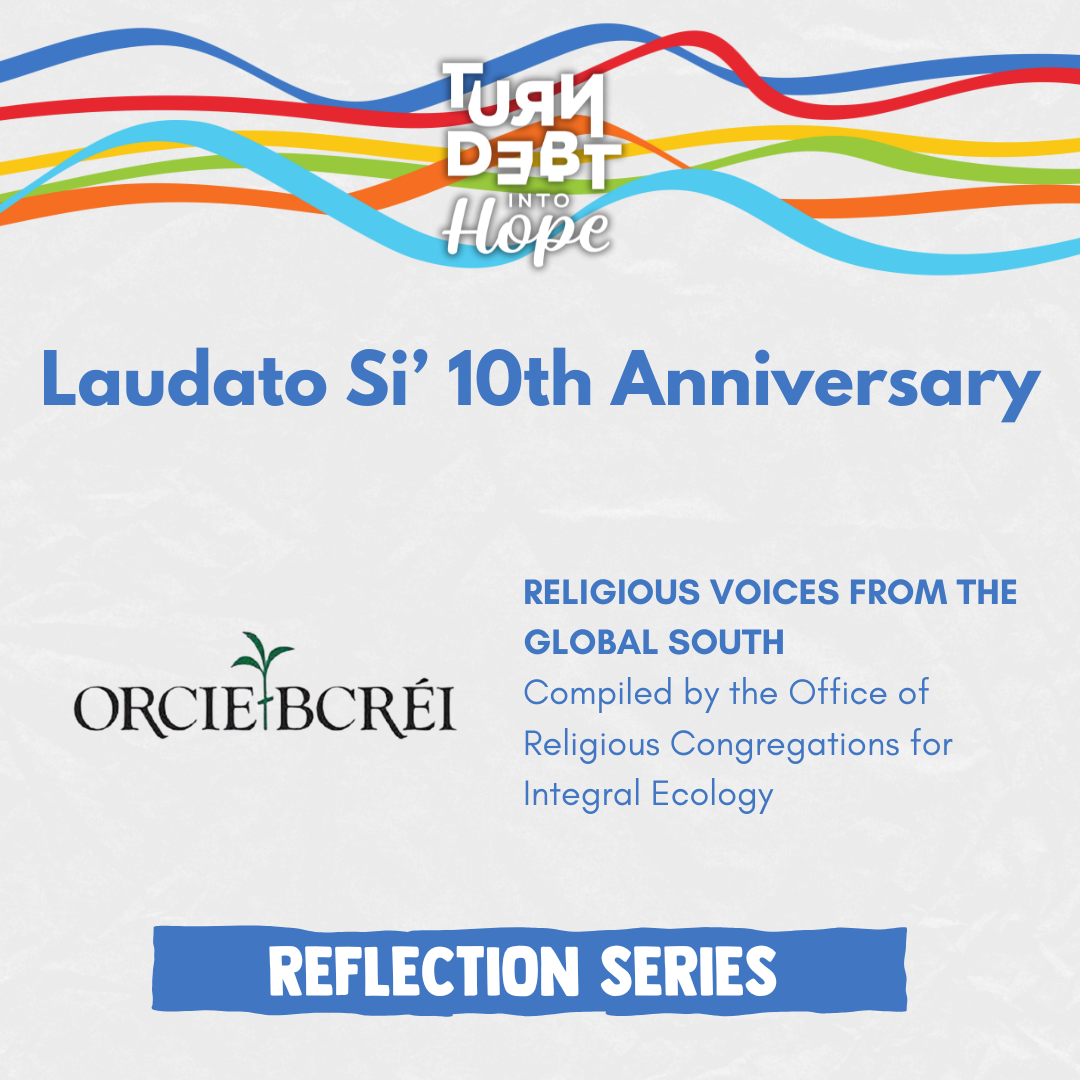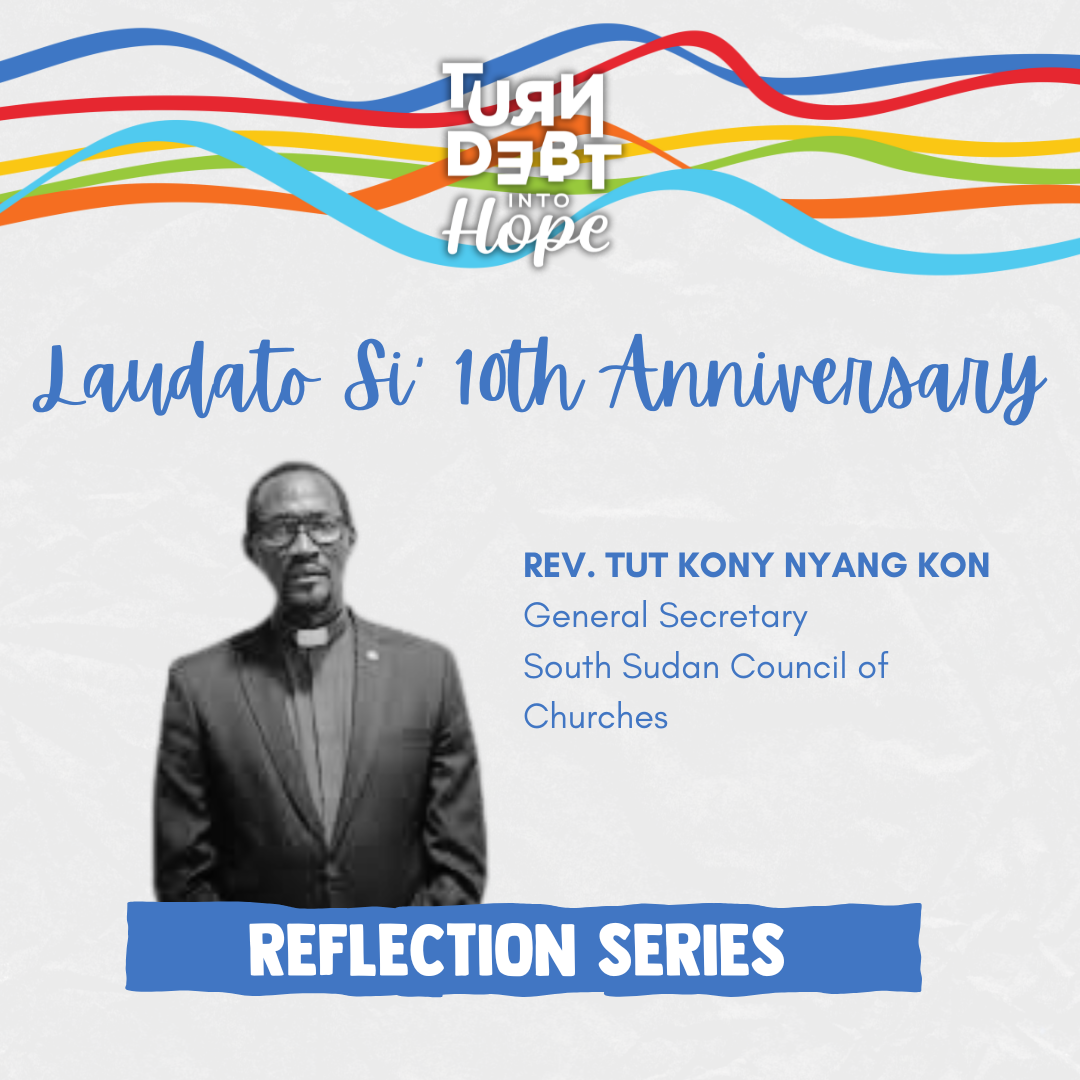Transition is inevitable, justice is not.
Strengthening Voices for a Just Transition, a KAIROS project in 2024
This project aims to nurture a cohort of changemakers to help guide us through the next stages of the energy transition and strengthen just transition policies and programs with principles from Indigenous peoples, young people, and those most affected by climate change. The energy transition is already underway, however equity, respect for human rights, and systemic change are not guaranteed. As the federal government makes decisions that will define our future, this project aims to disrupt the status quo and present a vision for systemic transformation.
This project will:
- Amplify just transition principles from Indigenous peoples, young people, and the Global South.
- Convene intergenerational dialogues to develop bold and creative visions of societal transformation.
- Build the capacity of young adults to communicate and advocate for their principles of a just transition with decisionmakers and the public.
KAIROS will carry out four intergenerational dialogues in four locations in Edmonton, Saskatoon, Sarnia, and Sydney, NS. Activities will be carried out in partnership with community groups, Indigenous communities, and local KAIROS groups. In the second phase of the project, KAIROS will support a cohort of young adults with knowledge and skills to advocate for a just transition with decision-makers at all levels of government. This phase will also include opportunities for exchange of ideas and experiences across the country.
This project is supported by a grant from the Catherine Donnelly Foundation.
Background
The energy transition is inevitable and already underway. But how will we ensure that workers and communities affected by the transition are supported properly? How will we ensure that new energy development respects Indigenous rights and the natural environment? How will we ensure that jobs in the low carbon economy will be available to all, including those previously marginalized by the fossil fuel sector? How will we ensure that the low carbon economy supports equity and ecological integrity?
Transitioning the economy away from fossil fuel dependence is critical to addressing the climate crisis, which is fueling intersectional disasters such as extreme weather events, drought, and conflict to name a few. We cannot maintain the status quo of unlimited growth, extraction, and settler colonialism, which got us into this mess. We have an opportunity to take a different path – to set into motion deep transformation towards a life-giving economy and ensure that no one is left behind. This is what a just transition is all about.
Canada needs a just transition plan. In 2023, the federal government tabled Bill C-50, the Canadian Sustainable Jobs Act, which details measures to create sustainable jobs and advance a net-zero economy in Canada. This legislation is an important piece towards supporting impacted workers and communities. However, the bill is weak in areas such as Indigenous rights and alignment with Canada’s international climate commitments. The bill also presents approaches like carbon, capture, and storage (CCUS) as opportunities for sustainable jobs, but CCUS is still unproven and questionable technology that allows the fossil fuel industry to continue business as usual. False solutions only create false hope and won’t support an equitable and sustainable future.
Bill C-50 received Royal Assent in June 2024 and will become law. The federal government must now develop additional programs and policies to bring about an equitable economy for all that upholds Indigenous rights and ecological integrity.
Future legislation must align with UN Declaration on the Rights of Indigenous Peoples and Canada’s international climate commitments. A weakness of the Sustainable Jobs Act was its support for approaches like carbon, capture, and storage (CCUS) as opportunities for sustainable jobs. CCUS is still unproven technology that allows the fossil fuel industry to continue business as usual. This type of false solution will not bring about an equitable transition for the Earth.
DID YOU KNOW?
The term “just transition” was first coined in the 1990s by North American labour unions that were developing programs in support of workers who were losing their jobs due to environmental protection policies.
30 years later, the term now refers to the process and principles that will ensure that the energy transition is well-managed, inclusive and leaves no one behind. Just transition considers a whole-of-economy approach. It describes both where we are going as a society and how we plan to get there.
Learn More
- Proposed amendments to Bill C-50: The Canadian Sustainable Jobs Act, Ecojustice et al., 2023
- The Just Transition Guide, Indigenous Climate Action, 2023
- Roadmap to a Canadian Just Transition Act – A path to a clean and inclusive economy, Canadian Centre for Policy Alternatives, April 2021
- Recommendations for a Just and Feminist Post-Pandemic Transformation, KAIROS, 2020
- Mother Earth and Resource Extraction (MERE Hub) Digital Resource Hub
- Indigenous Wisdom – Living in Harmony with Mother Earth, KAIROS, May 2017
- A Just Transition to a Life-Sustaining Economy, KAIROS, May 2016
- New Economy Trailblazers Series, KAIROS
Take Action
- Read the Green Economy Network’s Common Platform – Making the Shift to a Green Economy. Send it to your MP and ask them to support the three priority areas outlined to stimulate the transition to a green economy future.
- Talk about the transition. Talk to family, friends, neighbours and others in your community about your concerns for the transition and what you would like to see in the future. The Faithful Climate Conversations from For the Love of Creation offer a good starting point for conversation.




